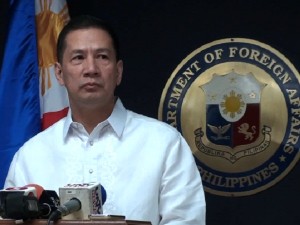MANILA, Philippines—Thirty-four Filipinos working at the Algerian gas field where dozens of foreigners are feared dead in a hostage crisis have been flown out of the country, the Department of Foreign Affairs said Friday.
Another Filipino worker escaped on his own along with a Japanese national, Foreign Affairs Undersecretary Raul Hernandez said as Algeria came under intense international criticism over a deadly commando raid against the Islamist captors.
It was not certain how many of the Filipino workers, who were flown to London by their foreign employer Thursday, were taken hostage when Islamist gunmen overran a gas plant in the north African desert the previous day.
Of those evacuated, one had suffered a gunshot wound, he said, declining to confirm press reports that at least two Filipinos were among those killed when the Algerian military launched its rescue operation.
It remained uncertain whether Philippine nationals were among those hurt during the rescue bid which Algeria said left “several people” killed or wounded but also freed a “large number” of hostages.
“The Algerians admitted that there were some deaths and injuries on the side of the hostages following the operation undertaken by the Algerian military forces but no details were released,” Hernandez said.
He did not know when the Filipinos might be repatriated.
Earlier he said the brother and wife of two Filipino workers in Algeria had separately told the DFA that their relatives and 19 other Filipino co-workers had been in the gas field during the hostage-taking.
“Just before the incident in Algeria, they were able to talk to their relatives who were inside Algeria. They said, ‘We are here inside and there are other Filipinos with us,'” Hernandez said.
But it was not clear what happened to these people, he added.
Manila is still trying to determine how many Filipinos were in the gas plant, a task that was complicated by the many foreign companies and contractors operating in the area.
Hernandez estimated that there were about 3,400 Filipinos working in Algeria.
He said Manila had plans to improve its monitoring of the situation, but did not elaborate.
About nine million Filipinos work around the world, as seamen, laborers, domestic helpers and in many other fields, earning more than they could in their poverty-stricken home country.
The money they send home is a major pillar of the local economy, but they are often exposed to danger overseas and their welfare is a thorny issue in the Philippines.
